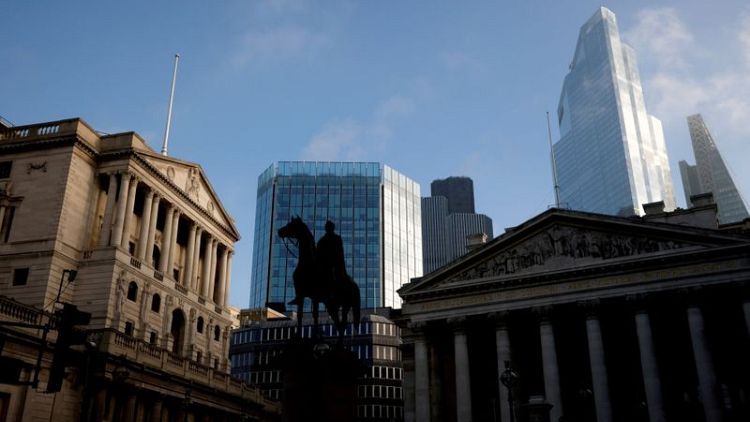By Kate Holton
LONDON (Reuters) - London's "Square Mile" financial district plans to convert empty offices into homes and offer lower rents to creative businesses as part of a recovery plan from the COVID-19 pandemic, which has left many working from home and once bustling streets deserted.
Built around the vast fortress-like Bank of England and home to ancient counting houses, narrow alleyways and Manhattan-style skyscrapers, the City of London is having to adapt to lure workers and companies back to a normal office life.
It set out an action plan on Tuesday to enhance its competitiveness, including broadening its appeal to creative companies more commonly based in trendier parts of the city, improved 5G connectivity and support for small businesses looking to grow.
Catherine McGuinness, the City's political leader, said she had been listening to businesses of all sizes to understand how they want to work after the pandemic, which has left much of the financial district resembling a ghost town for many months.
"Firms have told us that they remain committed to retaining a central London hub but how they operate will inevitably change to reflect post-pandemic trends, such as hybrid and flexible working," she said.
A push to attract design firms or start-ups would mark a change for the normally staid City which, as one of the most powerful financial centres in the world, features expensive restaurants alongside venerable old banks, many built in Portland stone.
The proposals in the five-year scheme include forming an ecosystem of high-potential tech-led businesses to act as a network to help others grow, the creation of a small business centre and a switch to residential property.
It said it would aim for at least 1,500 new residential units by 2030.
Like its rival financial district in the east of London, Canary Wharf, it is also looking at ways to improve its weekend offerings, when restaurants and cafes in the area are often shut, and exploring night-time cultural events.
(Reporting by Kate Holton; Editing by Gareth Jones)



